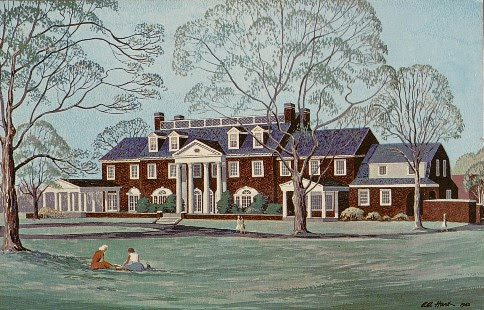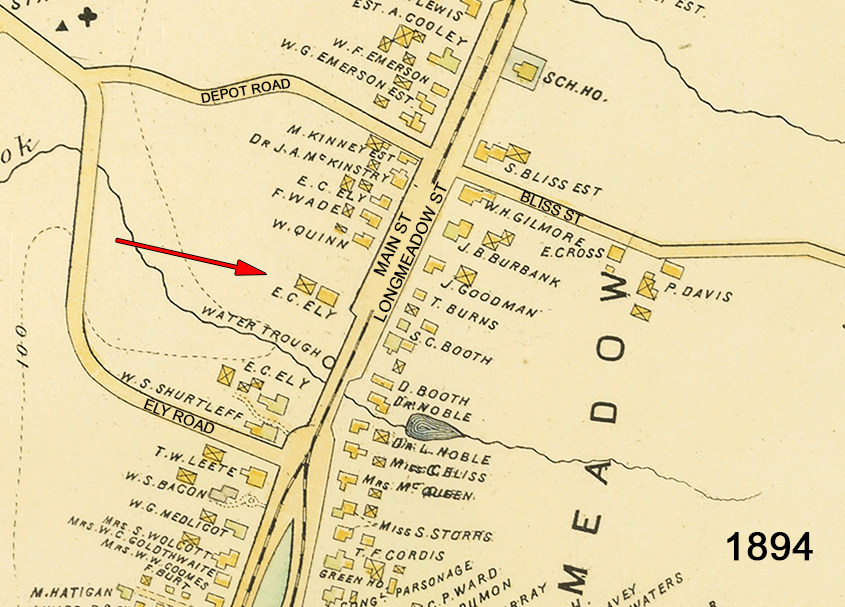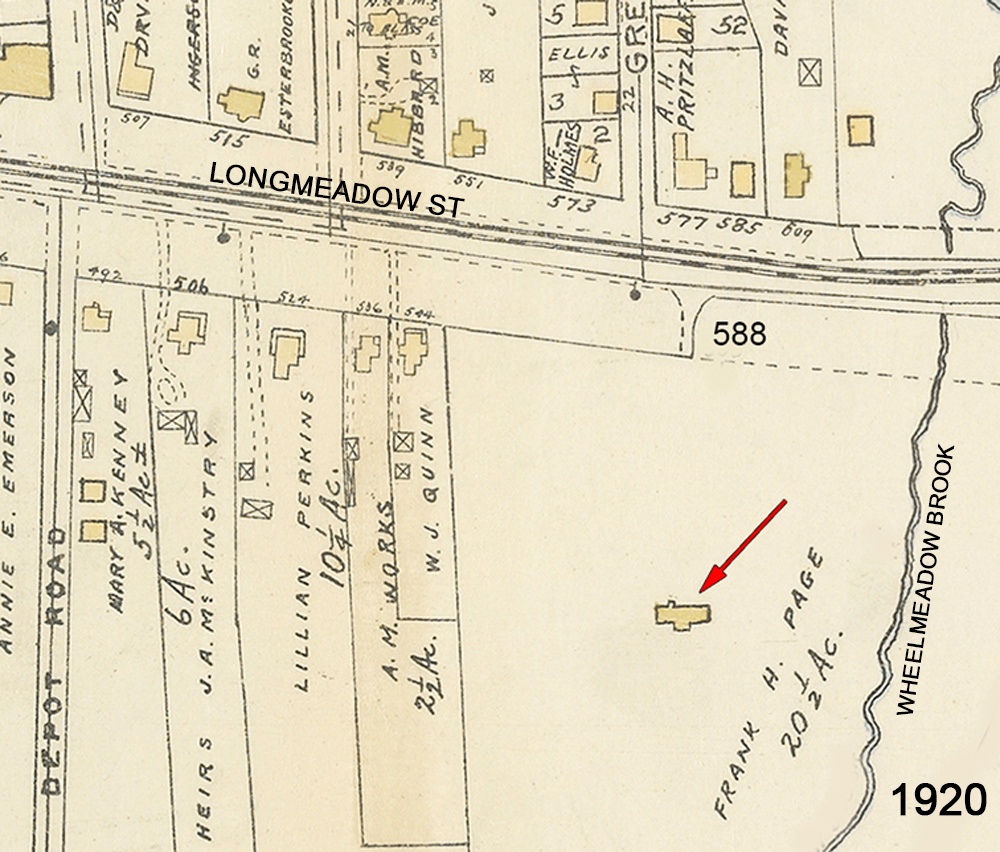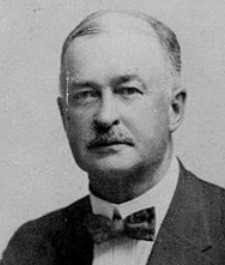|

Deepwood Hall
Painting by Artist Arthur A. Hart
Source: "1961 Longmeadow Annual Town
Report"
Cover Currently- Administration Building
at Bay Path University
At the beginning
of the 20th century George M. Hendee was
very well known in the Springfield, MA
area and also throughout the world. As
a young man he was a famous high wheeler
bicycle racer. Later, he and Oscar
Hedstrom (another bicycle racer) formed
the Indian Motocycle Company that was
located in Springfield. Mr. Hendee and
his wife Edith C. began making plans to
live in Longmeadow, MA. In 1909 he
purchased about 20 acres of land from J.
B. Burbank. This land was part of the
Ethan C. Ely estate located on
Longmeadow Street. Mr. Hendee removed
the old S.C. Stebbins house that had
been located on this property, so he
could build his house.

<click image to
enlarge>
In 1910 the ground
was staked out for the new Hendee
residence. However, the plans changed
after the Hendees divorced. The
residence was not built and the land was
sold to David and James Hale. In 1915
the Hale brothers sold this property to
another distinguished and successful
Springfield resident, Frank H. Page.
In 1916 the
property was staked out once again for a
beautiful house and the new residence
was completed in 1917. The Jan. 1, 1917
issue of the Springfield
Republican stated, "Frank
H. Page of Ingersoll grove has probably
built the finest and costliest house
ever put up in Longmeadow." The
property contained 20 acres of land and
the house was built of Harvard brick.
The living room was located on the first
floor and it overlooked Wheelmeadow
Brook. Some of the rooms in this
beautiful home included a library, a
billiard room, a dining room, a
breakfast room and also a dining room
for the servants. There was an area for
sewing and an elevator went to the third
floor. Chapman & Frazier of Boston, MA
were the architects for this beautiful
home at 588 Longmeadow Street. A. G.
Chapman of Springfield, MA was the
contractor and the cost was $50,000.

<click image to
enlarge>
Frank H. Page was born in Holyoke, MA in
1864. After graduating Massachusetts
Institute of Technology in 1885 he moved
to Minneapolis, MN and worked in the
knit goods industry. This led to his
interest in candy manufacturing
machinery. In the early 1890's Frank H.
Page and his wife Bertha moved to
Springfield, MA and he founded the
Confectioners' Machinery and
Manufacturing Company in Springfield.
This company became the National
Equipment Company. It expanded and the
location was on North Main Street in
Springfield next to Bosch Magneto's
property (near the Chicopee, MA
boundary).

Frank H.
Page (1864- 1928)
Source: Unknown
The Page family
lived in their beautiful home, known as
Deep Wood, for ten years. All three of
their children were then married, so
they sold their estate to Mr. and Mrs.
Douglas V. Wallace.
Douglas V. Wallace
was the vice- president and treasurer of
the Forbes & Wallace Company in
Springfield, MA. He died in 1930 and
his wife Mary R. continued to live on
this beautiful estate with their two
sons, John R. and Mack F. Wallace.
Time moved on and
the property became the campus of Bay
Path Institute of Commerce. Thomas G.
Carr was a Springfield businessman. In
1945 he purchased Bay Path Institute
that was located at 100 Chestnut Street
in Springfield, MA. After the
Longmeadow Zoning Board of Appeals gave
the "green light" to establish a private
school for girls at this location, it
moved from Springfield to Longmeadow.
Mr. Carr became the first president at
the Longmeadow location and changed the
name to Bay Path Secretarial School for
Women. It became Bay Path Junior
College in 1949. Years later, the name
changed again to Bay Path College. As
of 2014, we know this institution of
higher learning as Bay Path University.
The beautiful home that Frank H. Page
built at 588 Longmeadow Street is now
the Administration Building of Bay Path
University.
Sources:
Bay Path University: "Bay
Path's 100-year Plus History"
Springfield Republican- Oct 1,
1910, Jun 26, 1915, May 1, 1916, Jan 1,
1917, Dec 20, 1928, Jan 30, 1930, Jun
19, 1945,
1910, 1920, and 1930 U. S.
Federal Census
|

